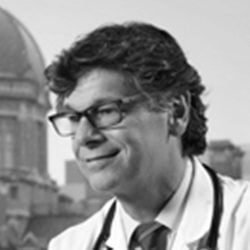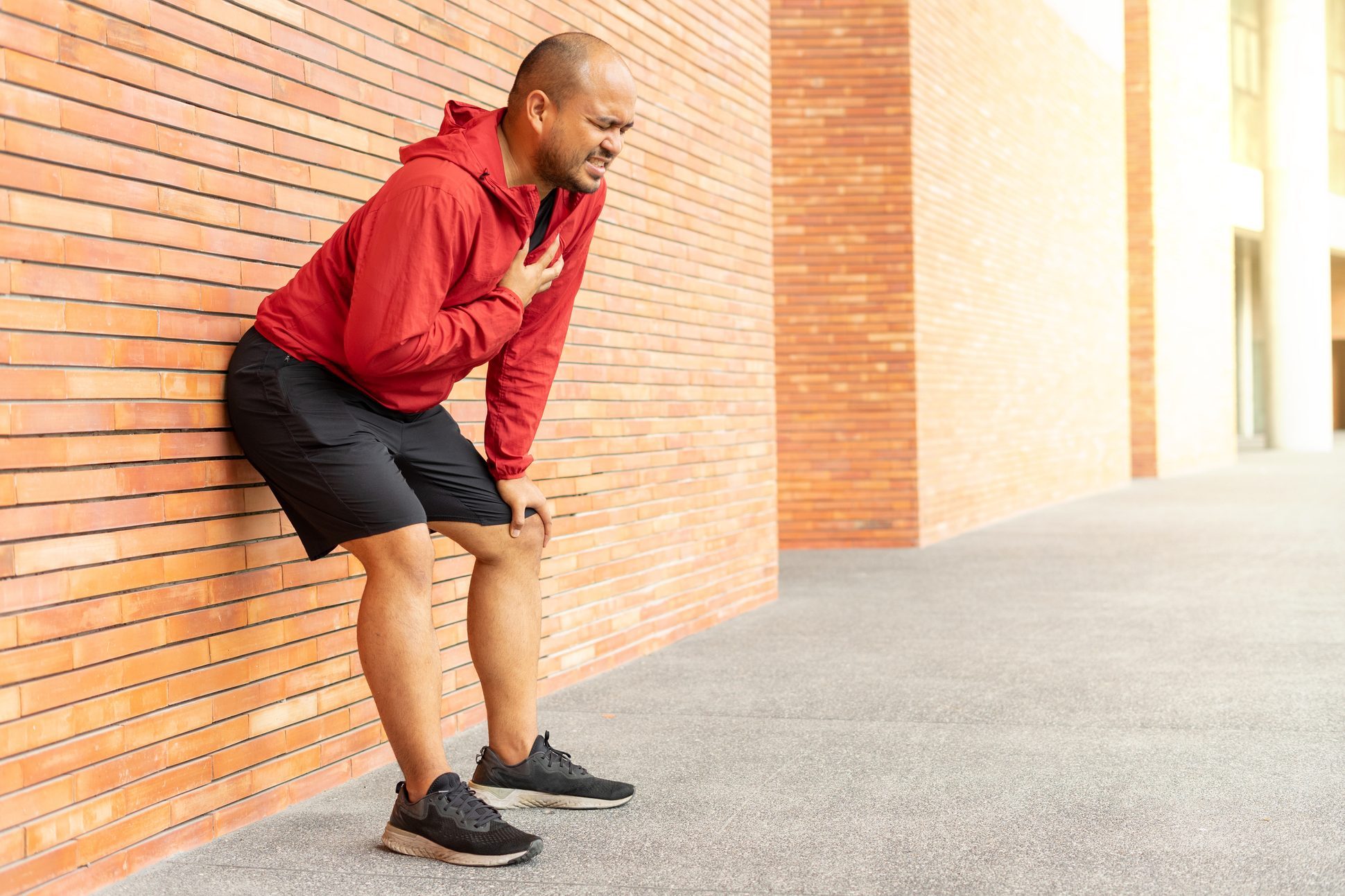
Surprising signs of a heart attack
It’s possible that when you think of heart attack symptoms, you imagine an excruciating, chest-clenching sensation. However, health authorities suggest that in a remarkable number of cases, this tell-tale pain may not be what an individual actually experiences.
In fact, the Centers for Disease Control and Prevention (CDC) estimates that of the 805,000 heart attacks that occur in the U.S. each year, 20 percent of these are “silent” heart attacks. As the CDC notes, a silent heart attack is accompanied by relatively mild symptoms… or none at all. “The damage is done,” the CDC explains, “but the person is not aware of it.”
Obviously, this makes it essential to identify possible silent heart attack symptoms as soon as possible. That’s because the quicker you get treatment, the more likely you are to survive without permanent damage to your heart muscle.
To help you recognize the silent signs of a heart attack, we spoke with cardiologists and other heart health experts who share the subtle symptoms you shouldn’t ignore. (After you learn about the silent heart attack symptoms, keep in mind that chest pain can occur because of these eight other reasons, too.)

An overall feeling that something’s wrong
For those days when you just feel “off,” pay attention to what else your body might be trying to tell you. “Heart attack patients have told me they have a feeling of doom—like something’s just not right,” says Stacey E. Rosen, MD, a cardiologist who has practiced for over 25 years and the vice president for women’s health at the Katz Institute for Women’s Health at North Shore-LIJ Health System in New Hyde Park, New York. “Listen to that little voice,” Dr. Rosen suggests. “If something feels off, it’s always better to be overly cautious and call a doctor.”
In addition, Dr. Rosen reports that some of her patients have reported feeling “less mentally sharp” right before a heart attack. Read here for possible ways to tell the difference between brain fog and a consequential medical event.
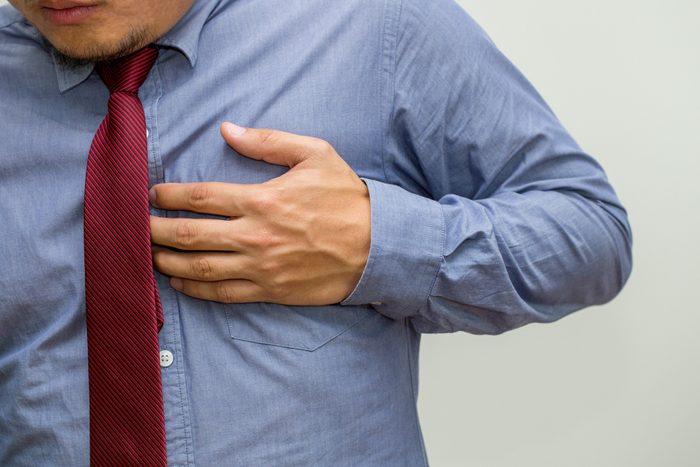
Feeling like you’re being hugged tightly
Heart attack chest pain is often classically described as sharp, stabbing, or even a dull ache. However, sometimes a heart attack may feel more like pressure and heaviness on your chest, or like you’re being squeezed tightly, says Jim Liu, MD, a cardiologist and assistant professor of Cardiovascular Medicine at The Ohio State University Wexner Medical Center.
Also read Cardiologists Just Cleared Up 7 Common—but Inaccurate—Beliefs about Heart Disease.

Fatigue
Dr. Rosen observes that fatigue is one of the most common signs of a heart attack she sees, especially in female heart attack patients. “In my 25 years of practice, people on the verge of a heart attack report feeling tired and not able to do their usual activities,” says Dr. Rosen.
During a heart attack, blood flow to the heart is reduced. This puts extra stress on the muscle, which is a reason this feeling of exhaustion can occur.
If you’re feeling fatigued, it’s smart to talk to your doctor about why. They will decide if an electrocardiogram (EKG), which checks heart activity—or another heart test—is necessary.
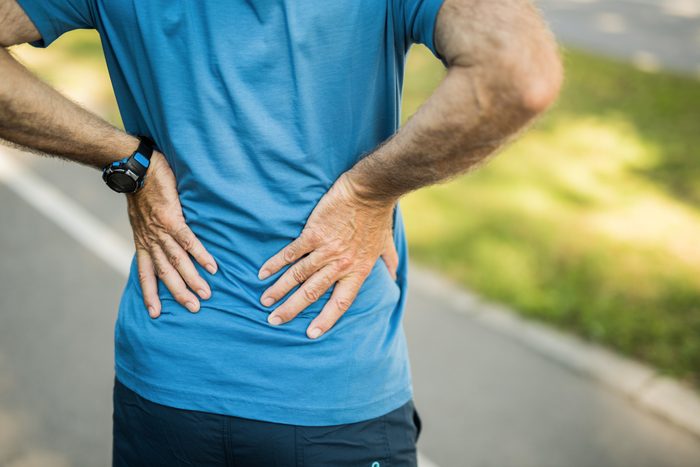
Soreness in the back, arms, or chest
Noticeable soreness in the back, chest, or either arm—not only the left—is often a sign of a silent heart attack. Because the pain is often not accompanied by the chest heaviness that’s typically associated with a heart attack, people often tend to ignore it, Dr. Rosen explains.
The pain may feel like a pulled or sore muscle or ache, as if you slept on it wrong. It may also come and go or remain constant. To be safe, if the pain is something new and it isn’t going away, you should talk to your doctor about it, even if it’s a body part that isn’t usually associated with the heart, she says.

Pain during exercise
A commonly overlooked symptom of a heart attack is pain—again, around the chest, arms, shoulders or back—that only comes on during exercise, says Dr. Liu.
If you have a partial blockage in your coronary arteries, that can limit blood flow to your heart, causing a feeling of weakness and pain, Dr. Liu says. The pain may stop when you stop exercising, as the heart doesn’t need as much blood flow, or it may continue even during rest. Both can be concerning signs of heart disease—but, Dr. Liu suggests, the former may suggest a heart attack has already occurred; while the latter may mean one is imminent.
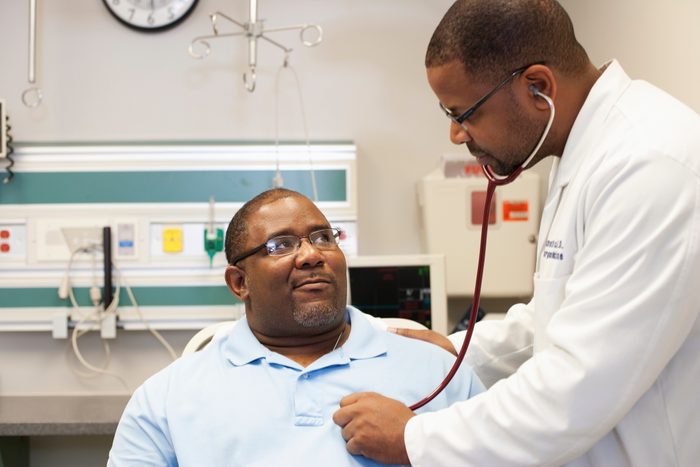
Seemingly unusual shortness of breath
If a flight of stairs is usually no problem but suddenly you find yourself gasping for air at the top, it could signal a heart attack. “Women especially tell me they noticed feeling fatigued or breathless while walking up steps or carrying groceries when they normally wouldn’t,” says Dr. Rosen.

Insomnia or waking gasping for air
If you wake up in the middle of the night gasping for air or feel short of breath right after waking up, that’s also a sign that something could be wrong, says Annapoorna Kini, MD, a cardiologist and professor of medicine at the Icahn School of Medicine at Mount Sinai in New York City.
Blocked blood flow to the heart could affect your breathing because the heart plays a key role in transporting oxygen to the rest of your body and removing carbon dioxide from tissues.
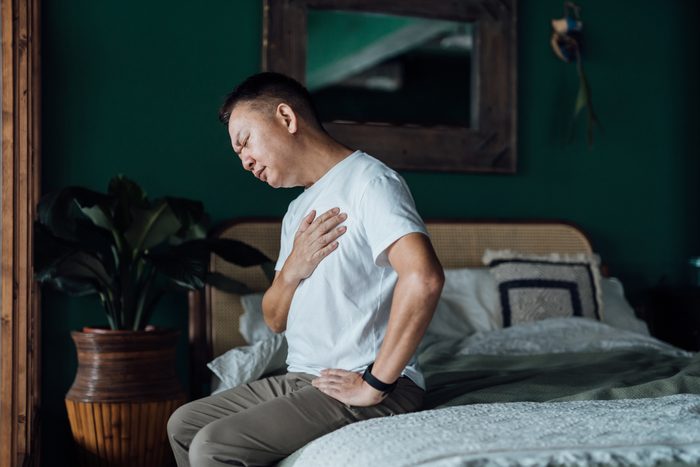
Heartburn or belching
If you have an occasional heartburn flare-up after a heavy lunch, it may be nothing to worry about. But if it’s out of the ordinary—or if heartburn has never bothered you before—Dr. Liu suggests you should call your doctor.
Angina, a heartburn-like chest pain, is caused by lack of blood flow to the heart that can signal a heart attack.

Stomach upset
Heart attack symptoms can sometimes mimic stomach problems like nausea, vomiting, or overall gastrointestinal upset—especially in women, says Dr. Rosen. “If you don’t feel well, always call your doctor. It could be that taco you had at 10 p.m., but it could also be a heart attack,” she says.
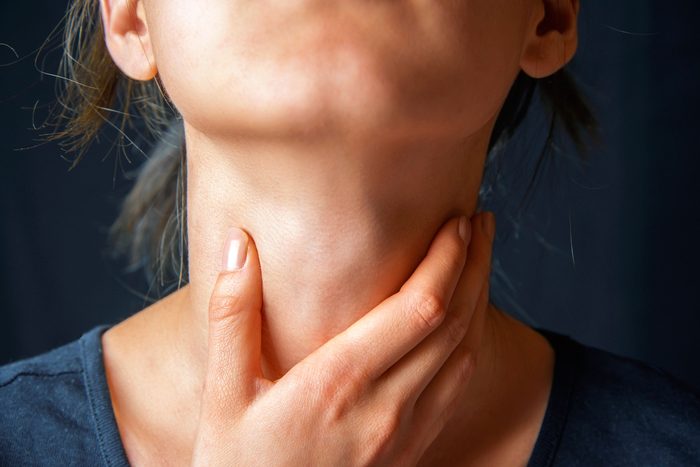
Throat, neck, or jaw discomfort
Unexplained discomfort in the neck or jaw or tightness in the throat can indicate a heart attack, says Dr. Kini, who says those are signs you should immediately contact a doctor.
It’s especially important for people with diabetes to pay attention to subtle changes like this, Dr. Rosen says. That’s because they can experience trouble feeling some sensations that serve as crucial alarms that something serious may be wrong.
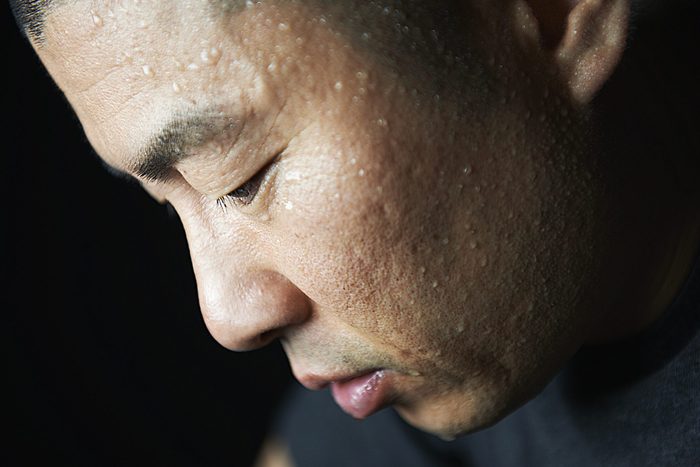
Sweating for no reason
Your hot flashes, cold sweats, and night sweats might be brushed off as “just hormones” or aging, but excessive sweating can indicate a serious health problem.
Dr. Liu says this symptom—especially if you’re sweating even when you’re not exercising or otherwise physically active—can be a subtle symptom of a heart attack. The sweating may come on suddenly and seemingly for no reason, or you may wake up drenched.

Vertigo or fainting
If the room is spinning and you feel light-headed, dizzy, or even faint, this is a possible sign of a heart attack, says Dr. Freeman. You may also feel hot and nauseated along with the vertigo.
Note: Women are often more likely to report this symptom than men—just one example of how heart attack symptoms can feel different for women.
Follow us on Facebook and Instagram, and sign up for The Healthy newsletter for wisdom you need for for keeping your heart healthy and happy.
Keep reading:
- 4 Ways Medical Research Shows Coffee Really Might Be Good for Your Heart
- Had a Heart Attack? These Are the 7 Foods You Need Now, From a Cardiologist and Dietitian
- 12 Best Small Treadmills for Your Home or Apartment, According to Certified Fitness Experts
- This Hidden Oatmeal Benefit Could Lower Your Cholesterol, According to Research

